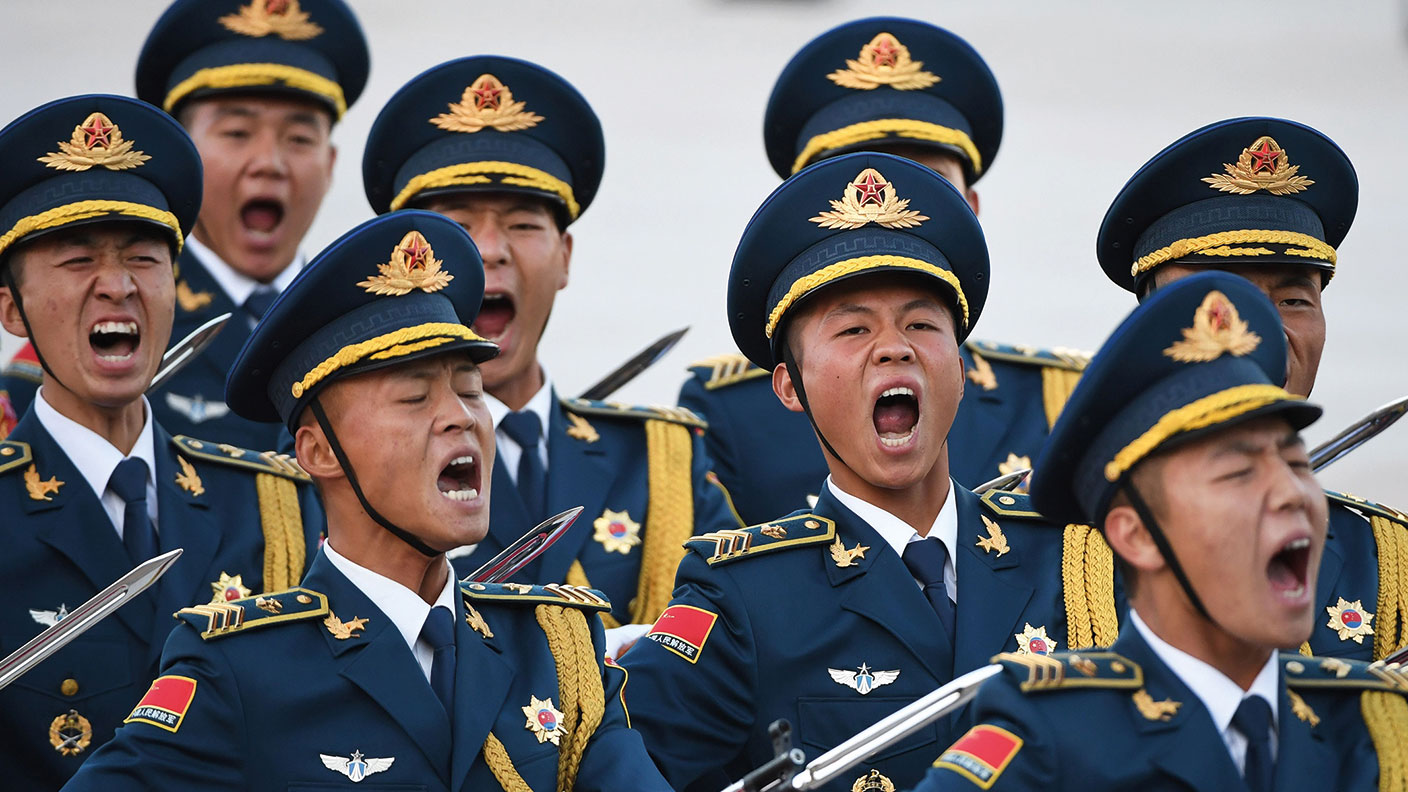Will King Dollar lose his crown?
The US dollar is the world’s leading reserve currency. But it might not always be.

Get the latest financial news, insights and expert analysis from our award-winning MoneyWeek team, to help you understand what really matters when it comes to your finances.
You are now subscribed
Your newsletter sign-up was successful
Want to add more newsletters?

Twice daily
MoneyWeek
Get the latest financial news, insights and expert analysis from our award-winning MoneyWeek team, to help you understand what really matters when it comes to your finances.

Four times a week
Look After My Bills
Sign up to our free money-saving newsletter, filled with the latest news and expert advice to help you find the best tips and deals for managing your bills. Start saving today!
“Will the fall of Kabul now bury belief in a world led by the US as its sole superpower?”, asks Louis-Vincent Gave of Gavekal Research. Can “US military prestige survive a defeat at the hands of untrained farmers driving Toyota pickups?”
The US has bounced back from military disaster before. But events in Kabul could come to mirror Suez. Declining US prestige is bullish for gold (the ultimate safe haven) and oil (because of the risk of “heightened tensions in the Middle East”). It is also “bullish for the renminbi… as China is the rising power in Asia”. Above all, it could prove “bearish for the US dollar”.
The US dollar is the world’s leading reserve currency. Investors turn to US assets as a safe haven in times of turmoil. Worries that the Delta variant will hurt global growth have thus given the greenback a boost of late. The US dollar index, which tracks the currency’s value against a basket of six major trading partners’ currencies, has gained 3.5% this year.
MoneyWeek
Subscribe to MoneyWeek today and get your first six magazine issues absolutely FREE

Sign up to Money Morning
Don't miss the latest investment and personal finances news, market analysis, plus money-saving tips with our free twice-daily newsletter
Don't miss the latest investment and personal finances news, market analysis, plus money-saving tips with our free twice-daily newsletter
Journalists sometimes say they are surprised that US failures don’t have a more negative effect on the dollar, says Robert Armstrong in the Financial Times. “I’m always surprised US stocks don’t go up more.” US disasters make the world more dangerous; “when the world is more dangerous, the place to be is American assets”.
The outlook isn’t necessarily bearish, says William Watts for MarketWatch. Some say America’s departure from Afghanistan frees it up to focus on its traditional allies. Ultimately there are few alternatives to the dollar. China’s renminbi faces formidable hurdles to becoming a safe-haven currency. The dollar’s biggest rival is the euro, but for now the “euro-denominated debt market isn’t… of the size and liquidity needed to meet the needs of global investors”.
Get the latest financial news, insights and expert analysis from our award-winning MoneyWeek team, to help you understand what really matters when it comes to your finances.
Alex is an investment writer who has been contributing to MoneyWeek since 2015. He has been the magazine’s markets editor since 2019.
Alex has a passion for demystifying the often arcane world of finance for a general readership. While financial media tends to focus compulsively on the latest trend, the best opportunities can lie forgotten elsewhere.
He is especially interested in European equities – where his fluent French helps him to cover the continent’s largest bourse – and emerging markets, where his experience living in Beijing, and conversational Chinese, prove useful.
Hailing from Leeds, he studied Philosophy, Politics and Economics at the University of Oxford. He also holds a Master of Public Health from the University of Manchester.
-
 Review: Eliamos Villas Hotel & Spa – revel in the quiet madness of Kefalonia
Review: Eliamos Villas Hotel & Spa – revel in the quiet madness of KefaloniaTravel Eliamos Villas Hotel & Spa on the Greek island of Kefalonia is a restful sanctuary for the mind, body and soul
-
 How a ‘great view’ from your home can boost its value by 35%
How a ‘great view’ from your home can boost its value by 35%A house that comes with a picturesque backdrop could add tens of thousands of pounds to its asking price – but how does each region compare?